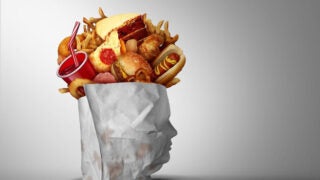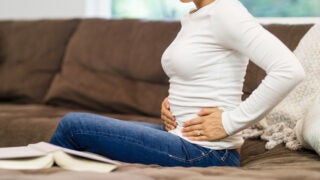“This immediate impact on air pollution is really important because it also has an immediate impact on health,” said USC’s Erika Garcia, the study’s senior author.
Medical Research
News Listing
A multidisciplinary team has developed a selective compound that inhibits an enzyme tied to inflammation in people at genetic risk for Alzheimer’s — while preserving normal brain function and crossing the blood-brain barrier.
A USC study finds that vaccination correlates with lower inflammation, slower epigenetic and transcriptomic aging, and slower overall biological aging in Americans age 70 and older.
The new research provides a blueprint for understanding memory and disease.
USC researchers studied the relationship between PFAS exposure and changes in markers of type 2 diabetes in teens who underwent the weight-reduction surgery.
USC researchers are launching a clinical trial examining whether specially bioengineered stem cells might restore eyesight.
This year’s NEMO Prize recipients are taking on pediatric brain tumors and hard-to-treat leukemia at the intersection of medicine and engineering.
The analysis is the first to control for the effects of tobacco smoking, a factor that likely obscured the heightened risk in earlier studies.
By tracking changes over time, they gained insights into how dietary choices may influence key biological processes.
A new NIH-funded study will use neuroimaging data to learn how pain processing in the brain influences treatment response in endometriosis, which affects millions of women and girls.










